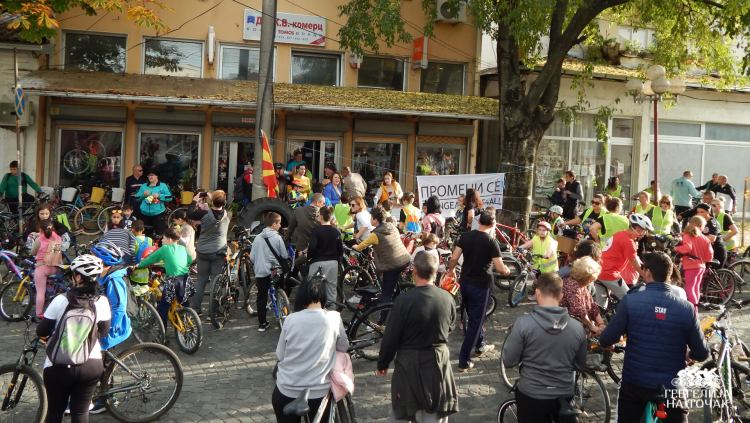Air quality is one of the key strategic interests of the Republic of North Macedonia. In recent years, the pollution problems are becoming greater and greater. High concentrations of pollutants are present in the air in most of the country. Air pollutant emissions come from various economic and social activities such as traffic, the industry, mines and the energy sector, households, construction activities, landfills, and agricultural activities.
According to the latest European Environmental Agency’s report, the Republic of North Macedonia is among the worst ranked countries in Europe. The cities of Skopje, Tetovo and Bitola have been ranked among the ten most polluted cities in Europe in recent years. According to the World Health Organization (WHO), air pollution causes 1.300 deaths per year and increases the number of people with respiratory illnesses. On the other hand, according to the World Bank, air pollution costs the country around 2,5% of GDP each year for additional health services, or around 300 million euros annually.
Having in mind the current situation in the country, primarily in terms of air pollution and the fact that the environment has become one of the main priorities and challenges for policy creators, the analyses of different measures and activities for air pollution reduction are of particular interest. In this direction, subsidies are part of the proactive measures that have given appropriate results in the last few years. A special challenge that has thus far rarely been analyzed is the access (needs) of vulnerable (economically) citizens to measures/subsidies related to air pollution and enhancement of the energy efficiency. This is of great importance considering the fact that these groups of citizens most often use heating methods that contribute to air pollution, due to lack of funds and substandard living conditions. In addition, inclusion and analysis of these categories of citizens is also significant because of the specific needs that arise from their status, and because such an analysis is characterized by a three-sided approach: economic aspect – social aspect – environmental protection aspect.
The analysis of primary data and information is based on two pillars:
- Analysis of the results from the questionnaire distributed to relevant civil society organizations that work with different socially/economically vulnerable categories of citizens; in order to determine their perception on the situation and bottlenecks in previous and current subsidy models;
- Elaboration of information from interviews conducted with stakeholders, representatives of the City of Skopje, the Municipality of Aerodrom, the Ministry of Economy, the Ministry of Labour and Social Policy, and UNDP. In this part the findings from the stakeholder (both on the supply and demand side) workshop co-organized with the UNDP are also of extreme importance.
With the aforementioned we provide a solid basis for designing a framework of conclusions and recommendations that can contribute in two directions:
- Enhancement of the existing air pollution subsidy models, especially aimed at greater inclusion of socially/economically vulnerable categories of citizens.
- Proposals for new subsidy models, procedures and processes in order to reduce air pollution/ environmental protection with particular focus on socially/economically vulnerable categories of citizens.

Regarding the method according to which subsidy funds are allocated, in the practice of local level subsidy programs thus far only the ‘first come, first served’ principle has been used. A significant challenge from the existing subsidy model, related to the selection criteria, is that the applications that are to be filled in do not contain any criteria related to the demographic, social and economic status of the applicant.




